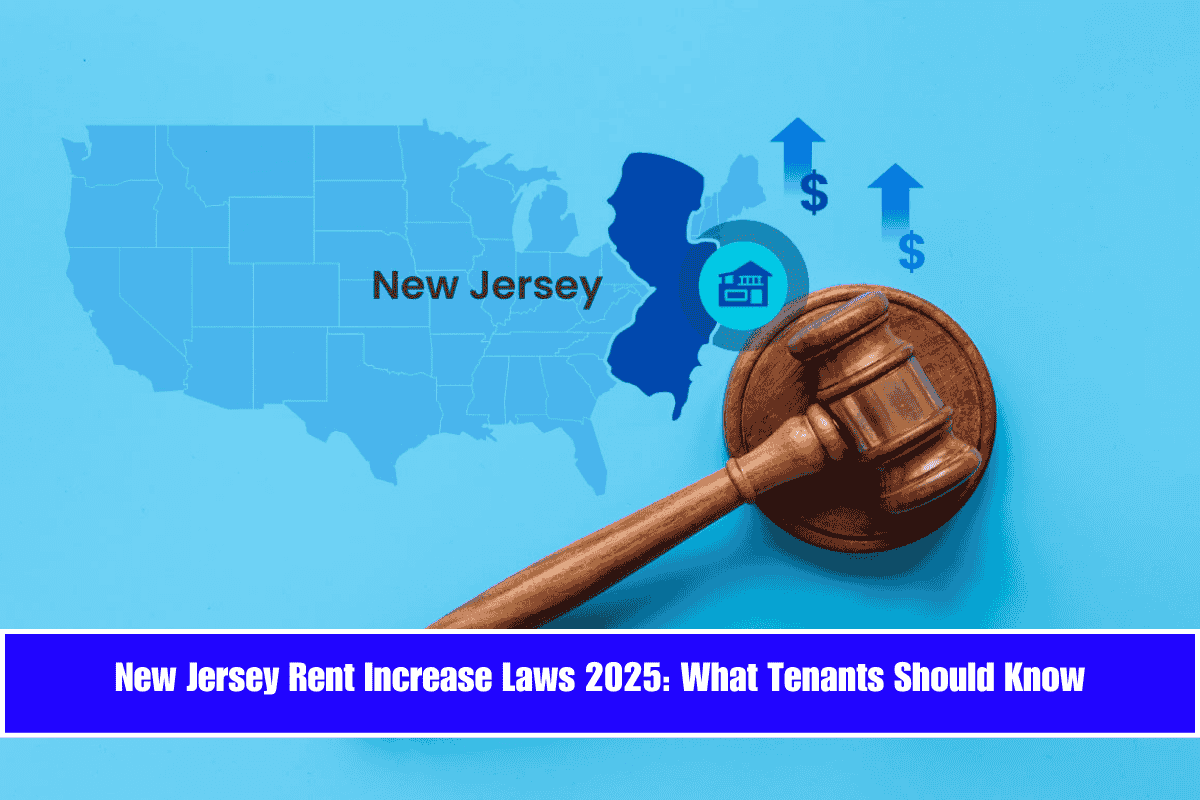- New Jersey does not have a statewide law limiting rent increases for residential properties. Instead, over 100 municipalities have their own rent control ordinances, creating a patchwork of regulations across the state.
- In areas without local rent control, landlords can generally raise rent by any amount, provided the increase is not “unconscionable” or retaliatory.
Typical Rent Increase Limits in Rent-Controlled Cities
- Most local ordinances cap annual rent increases between 2% and 6%, often tied to the Consumer Price Index (CPI).
- Examples for 2025:
- Newark: Up to 4% or the CPI increase, whichever is lower.
- Jersey City: Up to 4% or the CPI increase, whichever is lower; applies to buildings with 3+ units built before 1987.
- Paterson: 5% cap (3.5% for seniors and disabled tenants).
- Elizabeth: 3% cap, sometimes limited to a $20 maximum.
- Lakewood: 6.5% if landlord pays for heat, 5% if tenant pays for heat.
- Highland Park: 3.55% for 2025, based on CPI but capped at 5%.
Notice Requirements
- Landlords must provide written notice before raising rent:
- Month-to-month leases: At least 30 days’ notice is required by state law, but some cities require longer (e.g., 60 days in Edison).
- Year-long leases: Typically, notice must be given 60–90 days before the lease ends.
- Notice must include: New rent amount, effective date, and percentage increase.
Exemptions and Special Cases
- New Construction: Buildings constructed after June 25, 1987, are exempt from rent control for 30 years.
- Single-family homes, condos, and small owner-occupied buildings are often exempt from local rent control.
- Landlords must disclose to tenants if a property is exempt from rent control before lease signing.
Challenging Unfair Increases
- Tenants can challenge “unconscionable” or excessive rent increases in court or through local rent boards, especially if the increase is much higher than comparable units in the area.
- Local rent control boards may allow higher increases for major capital improvements or landlord hardship, but these must be approved through a formal process.
Table: Key Points for Tenants
| Issue | Rule in 2025 |
|---|---|
| Statewide rent cap | None |
| Local rent control | Exists in 100+ municipalities |
| Typical annual cap | 2%–6% (varies by city, often tied to CPI) |
| Notice required | 30–90 days (depends on lease and locality) |
| Exemptions | New construction, single-family, some small buildings |
| Challenging increases | Allowed for “unconscionable” or illegal hikes |
Most New Jersey tenants live in cities with some rent control, but the rules and caps vary widely. Always check your local ordinance for specific limits and procedures. Landlords must give proper written notice and cannot impose excessive or retaliatory increases. If you believe a rent hike is unfair or unlawful, consult your local rent board or seek legal advice.
Sources
[1] https://rentpost.com/resources/article/raise-rent-laws-in-new-jersey/
[2] https://www.steadily.com/blog/how-much-can-a-landlord-raise-rent-in-new-jersey
[3] https://www.doorloop.com/laws/new-jersey-rent-control-laws
[4] https://www.hemlane.com/resources/new-jersey-rent-control-laws/
[5] https://www.hpboro.com/residents/rent-control
















Leave a Reply